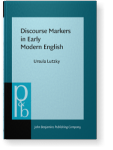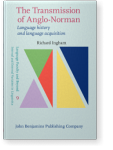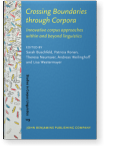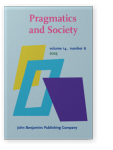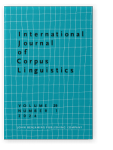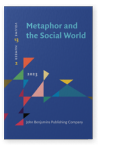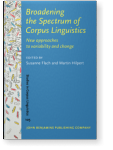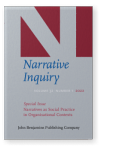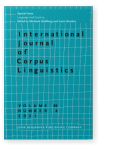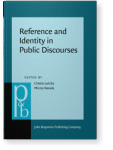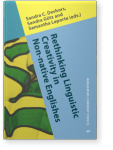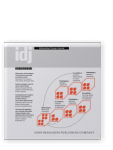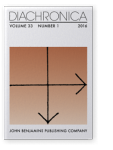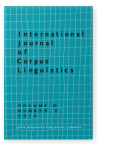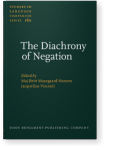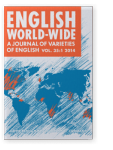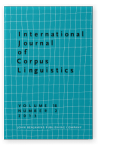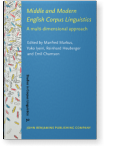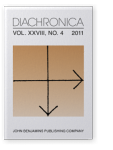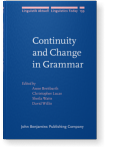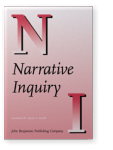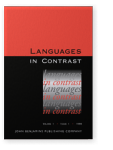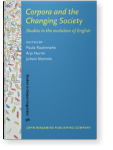Birmingham City University
List of John Benjamins publications for which someone affiliated with Birmingham City University plays a role.
Titles
Subjects Discourse studies | English linguistics | Germanic linguistics | Historical linguistics | Pragmatics
The Transmission of Anglo-Norman: Language history and language acquisition
Richard P. Ingham
[Language Faculty and Beyond: Internal and External Variation in Linguistics, 9] 2012. xii, 179 pp. | monographSubjects English linguistics | Historical linguistics | Language acquisition | Theoretical linguistics
2024 Establishing a ‘new normal’: Detecting fluctuating trends in word frequency over time
In: Crossing Boundaries through Corpora: Innovative corpus approaches within and beyond linguistics[Studies in Corpus Linguistics, 119] pp. 125–152
Keywords lexical change | collocation | time series | visualisation | diachronic change
2023 Self-help and masculinity: Speech acts in an online men’s group
Keywords impression management | manosphere | masculinity | relational work | self-help | speech acts
2023 Keywords of the manosphere
Keywords keywords | key-key-words | complement keywords | corpus-based discourse analysis | manosphere
2023 Landwhales, femoids and sub-humans: Dehumanising metaphors in incel discourse
Keywords incels | online community | dehumanising metaphors | gender and sexuality | social actors
2022 A data-driven approach to finding significant changes in language use through time series analysis
In: Broadening the Spectrum of Corpus Linguistics: New approaches to variability and change[Studies in Corpus Linguistics, 105] pp. 284–317
Keywords diachrony | language change | variation | statistics | methods
2021 Narrative evaluation in patient feedback: A study of online comments about UK healthcare services
Keywords patient feedback | Health Communication | NHS | narrative | annotation
2021 Networked discourses of bereavement in online COVID-19 memorials
Keywords bereavement discourse | memorials | COVID-19 | corpus-assisted discourse studies
2019 The pragmatic use of vocatives in private one-to-one digital communication
Keywords vocatives | pragmatic function | text messaging | gender | identity | categorisation
2019 “Thanks for the donds”: A corpus linguistic analysis of topic-based communities in the comment section of The Guardian
Keywords blogs | comments | journalism | corpus linguistics | collocation | community | addressivity | reference | identity | topic
2018 "It's always different when you look something from the inside": Linguistic innovation in a corpus of ELF Skype conversations
In: Rethinking Linguistic Creativity in Non-native Englishes[Benjamins Current Topics, 98] pp. 193–220
Keywords English as a Lingua Franca (ELF) | linguistic innovation | Skype | spoken corpus
2019 The impact of neglecting user-centered information design principles when delivering online information: Cyber security awareness websites as a case study
Keywords information design | online information | information processing | user-centered information design principles | cyber security
2016
Your blog is (the) shit
: A corpus linguistic approach to the identification of swearing in computer mediated communication
Keywords swearing | collocation | CMC | blogs | pragmatics
2014 ‘Don’t even [θ/f/h]ink aboot it’: An ethnographic investigation of social meaning, social identity and (θ) variation in Glasgow
Keywords Glaswegian | adolescent male language use | (th) | sociophonetics | Community of Practice | linguistic variation | ethnography
2013 Filling the gaps: Using the WebCorp Linguist’s Search Engine to supplement existing text resources
Keywords diachrony, | tools | monitor corpus | web as corpus | granularity
2011 Grammar change in Anglo-Norman and Continental French: The replacement of non-affirmative indefinite nul by aucun
Keywords indefinites | Anglo-Norman | polarity | Old French | negation | grammar change
2008 Variation in storytelling style amongst New Zealand schoolchildren
Keywords s narratives | New Zealand | children | Maori English | gender
